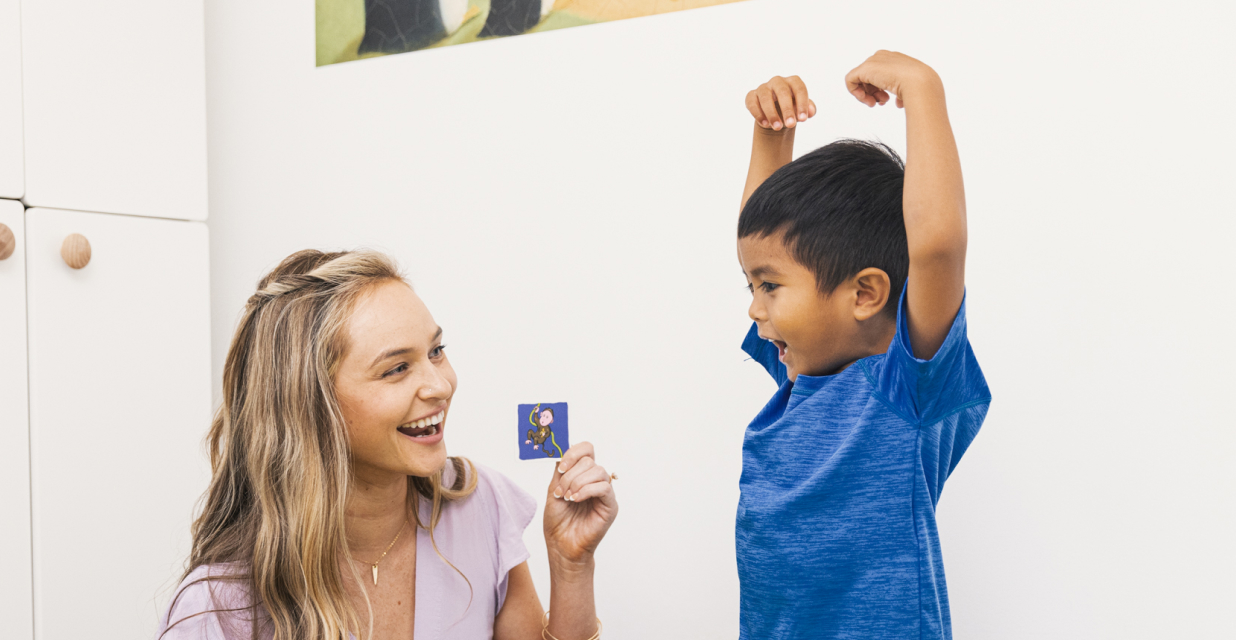Raising awareness, changing lives
May is national speech, language and hearing month – a time to celebrate and acknowledge the profound influence and dedication of speech-language pathologists (SLPs). We are so grateful to all of our SLPs for their unyielding commitment, and the remarkable impact they make on the lives of so many families. Here are some of the areas that SLPs in pediatrics focus on:
- Speech sounds—A child may substitute one sound for another, leave sounds out, add sounds, or change a sound. It may be hard for others to understand them.
- Spoken and written language—A child may have trouble understanding what others are communicating to them and may have problems explaining what they are thinking or feeling. They may also have difficulty with reading and writing.
- Stuttering (fluency)—A child may get stuck on certain sounds or words. They also may have tension or negative feelings about talking. This tension can get in the way of how they talk to others.
- Cognition—A child may have problems with long- or short-term memory, attention, problem solving, or organization.
- Social communication—A child may have difficulty understanding how others feel or following the rules of conversation, such as knowing how to take turns.
- Voice—A child may lose their voice frequently or use a hoarse or breathy voice. They may also speak with strain or effort.
- Augmentative and alternative communication—A child may need to find other ways to communicate besides talking, such as using a picture board or a speech-generating device.
- Feeding and swallowing—Problems with feeding and swallowing can make it hard for a child to participate in their school day. Speech-language pathologists help students eat and drink safely during the school day so that they have the energy to learn.
At SmallTalk, we asked some of our SLPs why they love their field. They responded:
“I love being a speech-language pathologist because….”
- “I get to help kids become more confident with communicating.” – Miss Sara
- “I get to play all of my favorite games. My childhood spirit will never die!” – Miss Amanda
- “I get to work hands-on with families and see the difference we make first-hand” – Miss Hannah
By Julia Navarra M.A. CCC-SLP
